
“Carolina doesn’t run without our graduate students. They serve as mentors, teachers and researchers — they are integral to work that is changing lives in North Carolina and beyond. Supporting our graduate students is necessary to carrying out our mission and remaining the best public research university in the nation.”
Chancellor Lee H. Roberts
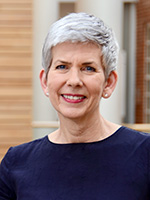
“Our graduate students make essential contributions to teaching, research and public service at Carolina. Throughout my career, I’ve been consistently impressed by their talent, drive and impact. They are the brilliant minds who will go on to solve the world’s greatest challenges. I am so sincerely grateful for everything they do for our community.”
Beth Mayer-Davis
Dean of The Graduate School
The Graduate Student Recognition Celebration is an annual event at which exceptional graduate and professional students are recognized for their significant contributions to research, community service, as well as teaching and leadership. The event begins with a brief ceremony during which the Dean presents student, faculty, and staff award recipients with a plaque for their achievements. Following the ceremony, attendees are invited to enjoy hors d'oeuvres while viewing research posters from outstanding graduate student scholars.
Honorees for 2024-2025
Impact Awards
Graduate students make an impact through their research, which benefits our state and beyond. Each year, The Graduate School honors graduate students in programs throughout our University for their powerful discoveries that contribute to a better future for people and communities in North Carolina.
We're pleased to present 13 Impact Awards for 2025— and to share the honorees’ own descriptions of their research projects..

Understanding the health impacts of wildfire smoke on vulnerable communities
Aleah Bailey, doctoral student in toxicology
“Wildfires are becoming a bigger public health issue due to worsening climate conditions like extreme heat, high winds and drought. They are increasingly common across the country, including in North Carolina. The smoke from these fires contains tiny particles that can cause inflammation in the lungs and body. Disadvantaged communities suffer more severe health problems after wildfires, but traditional risk assessments often overlook their stress-related vulnerabilities.
My research looks at how stress affects people's health after exposure to wildfire smoke. My analysis showed that stress altered inflammatory responses to woodsmoke. This means people with high stress and recent smoke exposure may have worse health outcomes
By including stress in risk assessments and studying disadvantaged communities, we can create better strategies to improve health outcomes related to pollution.”
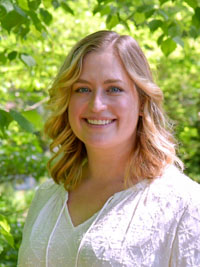
Considering North Carolina farmworkers' experiences through storytelling
Sarah Blanton, doctoral student in romance studies
“Across North Carolina, laborers work in the sweltering summer heat, harvesting crops that communities rely on. By late autumn, many of these workers board buses back to Mexico until the next peak agricultural season approaches. As of January 2022, an estimated 2.9 million migrant farmworkers work in the US, most of whom come from Mexico. North Carolina hosts between 14,000 and 17,000 seasonal farmworkers each year. Despite their crucial role in food production, their lives and contributions are often overlooked.
My dissertation explores the experiences of farmworkers through various forms of storytelling, considering things such as songs, short stories, cleanly plowed fields, and marigold flowers in rural North Carolina as narratives. I combine these with ethnographic descriptions, archival materials and literature to highlight this essential community and consider their experiences.
My project focuses on what transnational labor looks like locally through active community participation. I hope my research encourages dialogue on how local communities with deep agricultural roots can become more integrated, inclusive, and appreciative of these laborers.”

Preventing maternal morbidity through prenatal care
Laura Chaves Cerdas, doctoral student in public policy
“My research aims to find out whether pregnant women in North Carolina who have diabetes or high blood pressure can prevent serious health problems during birth by going to the recommended number of prenatal visits.
Going to prenatal care visits helps detect problems early in pregnancy and prevent serious health problems during birth. It can also encourage healthy habits that benefit them for life. In 2021, 1.21% of pregnant women in North Carolina had diabetes and 3.39% had high blood pressure. Properly managing these conditions during pregnancy through prenatal care can improve health outcomes for both mothers and babies.
I discovered that for North Carolinians from 2011 to 2019, not going to enough prenatal care visits increased the chances of serious health problems during birth. This effect was even stronger for people with diabetes or high blood pressure. I hope my research highlights the importance of attending prenatal care visits for pregnant women in North Carolina.”
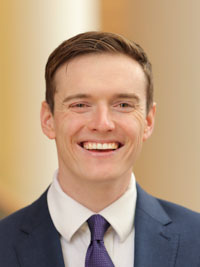
Improving transportation systems for NC patients experiencing mental health crises
Jeremy Fine, MD-PhD student in health policy and management
“In North Carolina, members of our community experiencing mental health emergencies are often transported by law enforcement. This can be traumatic and make them feel like criminals, which might prevent them from seeking help in the future. The Non-Law Enforcement Transportation (NLET) Program is a new $20 million state project that aims to provide a more compassionate, patient-friendly way to transport these individuals.
To see how well this program works, I led a team to create a detailed plan. We will use surveys and interviews with patients and their families, and get feedback from healthcare workers, police and transportation providers. We'll also analyze data about how services are used and paid for. This will help us see if the program makes patients' experiences better, reduces forced hospitalizations, lowers costs, and ensures everyone has fair access to the service.
Once this plan is executed, the findings will help North Carolina officials decide whether the NLET Program should be expanded statewide. It will also guide other states considering similar programs. By promoting a more compassionate approach to crisis care, my work aims to improve mental health systems and reduce the trauma people experience during psychiatric emergencies.”
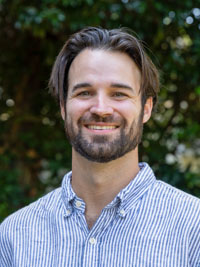
Ecological practices to promote NC oyster populations
Nicholas Funnell, doctoral student in ecology
“Since 2003, North Carolina has established nearly 3,000 acres of oyster farms and protected areas as part of its goal to become “The Napa Valley of Oysters.” While this focus on oysters is promising, the reality is that oyster farms in NC have experienced severe die-offs, often losing over 90% of their oysters. Wild reefs have also suffered, losing nearly half their adult oysters in two years, showing that this problem isn't limited to farms.
Oysters are very important for the health of the ecosystem, and their loss affects NC communities in ways beyond just having fewer oysters to sell. In my research, I studied oyster-related practices in NC and suggested some changes to help improve oyster health.
First, I discovered that moving young oysters from saltier to fresher waters can help them grow and survive by reducing the number of predators. Second, I learned that harvesting only large adult oysters from reefs appears to be sustainable. Third, the location and equipment used in oyster farms can help reduce water pollution, but this needs to be analyzed for each specific site and isn't a one-size-fits-all solution. While these small changes can't fix major water quality issues, they can still help oyster populations and the people who depend on them.”
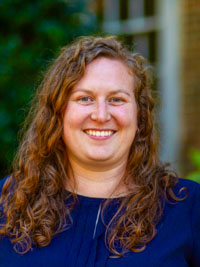
Improving flood hazard models for hurricane risk assessment
Lauren Grimley, doctoral student in earth marine, and environmental sciences
“Hurricanes are a major concern for North Carolina because they cause widespread flooding, which damages homes, public infrastructure, and the economy. Hurricane flooding is complicated because it can be caused by many factors like sea level, storm surge, waves, wind, rainfall and streamflow. However, traditional flood models usually consider only one factor and are not very detailed. This is an issue because these models are needed to understand risk, set building standards, prevent development in risky areas, and set flood insurance requirements. To make good decisions and reduce future damage, communities need accurate and detailed flood risk assessments.
In my dissertation, I use a flood model that takes into account multiple factors to provide better flood hazard information for hurricanes impacting eastern North and South Carolina. I use this model to study how climate change, such as more rainfall and stronger storms, could worsen flooding from storms to determine who and what may be exposed.
My results show that heavy rainfall from hurricanes in the future will not only generate more flooding inland but will worsen flooding at the coast which is also exposed to storm surge. These extreme storms will generate flooding over larger areas, producing greater flood depths that impact infrastructure and people. For example, I found that if Hurricane Florence (2018) happened in a warmer climate, the number of affected buildings and roads would double. The flood data created as a part of my dissertation is being used by state-level organizations responsible for infrastructure design, flood recovery, and adaptation planning, like the NC Office of Recovery and Resilience (NCORR) and NC Department of Transportation (NCDOT).”

Building psychological resilience among active-duty military service members
Kenneth Harris, III, doctoral student in social work
“North Carolina is home to many active-duty military members, ranking fourth in the US. It houses over 8.5% of the nation's active military force, which includes nearly 100,000 service members and over 112,000 family members.
Many service members join the military to find better opportunities and resources, especially those from difficult backgrounds. Sadly, studies show that 1 in 4 service members suffer from mental health problems like depression and suicidal thoughts. These challenges are often exacerbated by the demands of military life. Minority service members face even more difficulties with mental health and getting treatment, which means they need new ways to get help.
Psychological resilience is a strengths-based approach to mental health that focuses on dignity and self-worth. My dissertation aims to find new ways to build psychological resilience among minority service members and their families. For this research, I am using data from a 2021 military unit wellness survey completed at Fort Bragg, NC to help create strategies for building resilience.”

Addressing burnout among North Carolina healthcare professionals
Elizabeth Kwong, doctoral student in biomedical and health informatics
“My research addresses healthcare professionals’ burnout and well-being in North Carolina. Burnout is very common among healthcare workers and negatively affects their well-being, leading to a higher risk of medical errors and patient harm.
We used a systems analysis approach to measure burnout, identify its causes, and find ways to improve the situation based on feedback from healthcare teams. We provided detailed reports and practical recommendations to leaders in over six different medical departments at UNC Health, including emergency medicine, plastic surgery and trauma surgery.
Our work outlines easy-to-implement methods to identify burnout and suggests improvements that can be applied in other healthcare settings. This research directly benefits healthcare professionals in North Carolina by giving health system leaders high-impact, low-effort recommendations.
Results showed that burnout rates among healthcare professionals ranged from 56% to 88%, with causes varying by department. Common issues included inefficient workflows, excessive workload, the severity of patients' conditions, and work-life balance. We provided customized recommendations to each department to address their specific needs, such as improving patient workflows, protecting time for breaks, and aligning job responsibilities. These recommendations are now being implemented by department leaders with support from the Division of Healthcare Engineering. Our approach is also being used to address burnout and well-being in other departments across UNC Health.”

Impact of multiple factors on the financial and mental well-being of NC breast cancer survivors
Olufeyisayo Odebunmi, doctoral student in health policy and management
“Even though breast cancer survival rates have improved across the country, racial inequalities still exist. In North Carolina, White women are more likely to get breast cancer, but Black women are more likely to die from it. Dealing with breast cancer can cause stress and financial problems, and Black women in NC are affected more than others.
My research looks at how different factors affect the financial and mental health of Black and White breast cancer survivors. The first part of my study examines how individual and area-level factors impact mental health and financial difficulties. The second part involves interviewing Black breast cancer survivors in NC to understand what affects their emotional well-being.
By finding out how these factors influence mental and financial outcomes, my research aims to provide important evidence to help make systemic changes. This could reduce barriers and improve mental health and fairness for breast cancer survivors.”

Improving transportation for Medicaid beneficiaries in North Carolina
Annie Oommen, master’s student in city and regional planning
“In July 2021, most Medicaid beneficiaries in North Carolina switched from a fee-for-service model to Managed Care. This change divided responsibility for coordinating non-emergency medical transportation, a free service for all beneficiaries, among several different groups.
My research highlights the ways that Medicaid beneficiaries in North Carolina are struggling to access healthcare under the new system. Policymakers need to use these findings to fix the unintended problems caused by the Medicaid Transformation to ensure that vulnerable populations have the same mobility as everyone else.
For those who can't drive due to physical ability, legal status or cost, these transportation services are their link to all types of non-emergency care, from regular chemotherapy to treatment for acute conditions like shingles. The quality and reliability of non-emergency medical transportation services can mean the difference between life and death. Given the demographics of Medicaid, this work directly impacts low-income, elderly, disabled and rural North Carolinians from the mountains to the coast.”

Improving health outcomes through collaborative public health leadership
Courtney Peragallo, recent master’s graduate in public health
“Recent research shows how the COVID-19 pandemic affected the most vulnerable communities in the United States, revealing health inequities while providing a roadmap for improving health in marginalized communities. North Carolina's COVID-19 response, led by Mandy Cohen, is seen as a nationwide model for community engagement and crisis response.
Statewide partnerships and strengthened public health preparedness led to significant results for marginalized populations. These include reducing racial disparities in COVID-19 death rates, increasing access to testing and treatment for Black/African American and Hispanic communities, and improving professional training for students at public universities like UNC-Chapel Hill and 12 Historically Black Colleges and Universities.
Our research looks at how collaborative public health leadership improved COVID-19 outcomes and prepared future leaders to handle crises. The impact of partnerships across different fields reduced racial disparities and promoted health equity for those who faced barriers in accessing COVID-19 testing, treatment, and vaccines.
Building a diverse network of partners from state government, academia, healthcare and marginalized communities helps advance health equity. By bringing together all these partners, we can reduce disparities in vaccine and testing access, improve public health leadership skills, and enhance state-level public health preparedness.”


Health impacts of environmental hazards on migrant farmworkers
Sarah Perry and Charlotte Robbins, recent master’s graduates in public health
“Farmwork is one of the most essential and dangerous jobs in the United States. North Carolina, a top agriculture-producing state, hosts up to 70,000 migrant farmworkers and their families annually. These workers face unique stressors such as environmental hazards like pesticides and heat, poor access to healthcare, and discrimination.
We partnered with NC FIELD, a farmworker advocacy organization in eastern North Carolina, to collect stories from farmworkers about how these challenges affect their health and lives.
We also looked at how policies on migration, housing, and labor impact their health and access to services. Our goal is to improve policies to protect farmworkers.
This fall, we supported OSHA’s proposed rule on heat protection for farmworkers and suggested ways to strengthen it. Our work has helped maintain UNC’s partnership with NC FIELD and created new opportunities for collaboration.
We are thankful for NC FIELD's guidance. Together, we aim to share our findings with farmworkers and advocate for their health and well-being.”
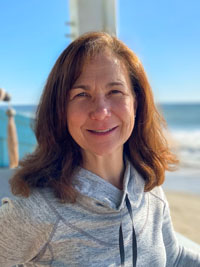
Impact of representation in children’s literature on North Carolina kindergarteners
Jennifer Stone, recent doctoral graduate in speech and hearing sciences
“Since 2017, North Carolina has invested over $25 million in Dolly Parton’s Imagination Library to distribute picture books to nearly half of the state's young children. The goal is to improve family literacy and economic development, based on research linking book ownership to better academic outcomes and a more educated workforce. However, the content of these books can shape children's views of themselves and society, and many award-winning books contain stereotypes that reinforce cultural biases. Policymakers might not have considered the impact of all kindergarteners owning the same set of 60 books.
My analysis of the 60 books given to kindergarteners in 2022 showed improved racial diversity compared to other collections. However, there were no representations of people with disabilities or those who identify as LGBTQ+. This means children and families in North Carolina with these identities did not see themselves in the Imagination Library.
Additionally, the collection included negative clichés about reading and stereotypes that favor White, middle-class, heterosexual, and able-bodied norms, often placing the responsibility on mothers to shape their children to fit social expectations. This could lead to negative biases about literacy and culture in families and classrooms. Accurate representation is essential for our society.”
Dean’s Distinguished Dissertation Awards
The dissertation is the highest level of graduate student scholarship. Recipients of the Dean's Distinguished Dissertation Award are making outstanding contributions — read about their research in their own words.
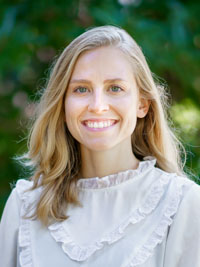
Julia Brom, chemistry
2025 Dean's Distinguished Dissertation Award, Biological and Life Sciences
Dry Proteins and their Protection Assessed by LOVE NMR, Calorimetry, and Catalytic Activity
Dissertation Adviser: Gary Joseph Pielak
“The availability of lifesaving protein drugs and powerful industrial enzymes is hindered by their instability in solution, necessitating costly refrigeration. Dehydration is an alternative as dry proteins may be stored at room temperature, but most proteins only survive drying when appropriately formulated with protective molecules. Nevertheless, the protective mechanisms are poorly understood, making dry protein formulation empirical and often unsuccessful. My dissertation illuminates these mechanisms by investigating and connecting residue-level dry protein structure and functional protection after rehydration. These studies uncovered new phenomena surrounding protein protection in the dry state and weighed in on existing hypotheses. My research provides a foundation for better formulation of dry protein products.”
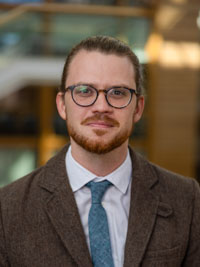
Adams Sibley, health behavior
2025 Dean's Distinguished Dissertation Award, Social Sciences
Determining the Feasibility and Acceptability of a Novel Stigma Resistance Text Message Intervention for People who Use Drugs
Dissertation Adviser: Vivian Fei-ling Go
“People who use drugs face stigma from all corners of society yet have few resources to cope with prejudice and discrimination. Many internalize and accept these negative beliefs about themselves. In this dissertation, I first offer two new frameworks for understanding substance use stigma based on surveys and interviews with people who use drugs in rural Appalachia. Then, I describe my process of creating an automated text message program designed to help people cope with and resist substance use stigma using theory-based supportive messages. Finally, I discuss the outcomes of a 4-week trial of the program I conducted. I find that the program is highly acceptable to participants and feasible to conduct, with promising evidence of reducing self-stigma and improving self-esteem. Given its pertinence to desirable outcomes like help-seeking and undesirable outcomes like overdose, I conclude that stigma deserves greater attention in our efforts to stem the tide of the overdose epidemic.”
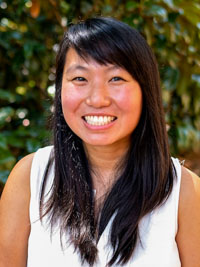
Pa Chia Thao, physics and astronomy
2025 Dean's Distinguished Dissertation Award, Mathematics, Physical Sciences and Engineering
Windows Into Planetary Evolution: the Detection and Characterization of Young Planets
Dissertation Adviser: Andrew W. Mann
“A fundamental challenge in exoplanet research is unraveling how planets form and evolve, and become the diverse worlds we see across the galaxy. By analyzing the light that passes through their atmospheres as they orbit their host stars, we can identify the elements and molecules present in these planets. While this technique has transformed our understanding of planetary atmospheres, most studies have focused on older systems, leaving early formation stages largely unexplored. To bridge this gap, my dissertation investigates three newly formed exoplanets — each less than a billion years old — using ground- and space-based telescopes, including the Hubble Space Telescope and the James Webb Space Telescope. This research not only sheds light on how planetary composition changes over time but also helps us better understand how planets, including those in our solar system, come into existence. ”

Jennifer Wu, art history
2025 Dean's Distinguished Dissertation Award, Humanities and Fine Arts
The Metapictorial Portrait in Early Modern Britain, 1520-1620
Dissertation Adviser: Tatiana C. String
“My dissertation investigates portrait paintings produced during a transformative historical period in which artistic techniques and tenets from the European continent converged with the pictorial traditions of the geographically peripheral regions of England and Scotland. By examining a variety of Tudor and Jacobean paintings, I argue that native and émigré painters forged eclectic and resourceful visual strategies that engaged with complex issues of artistic representation. During this time, portraiture emerged as the dominant genre of painting in early modern Britain.”
Boka W. Hadzija Award for Distinguished University Service by a Graduate or Professional Student
This award, one of the Chancellor's Awards at Carolina, recognizes graduate and professional students who demonstrate exemplary character, scholarship, leadership and service by giving above and beyond to the greater University community.
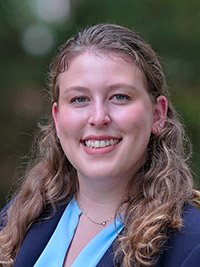
Raeanne Geffert
Raeanne Geffert, a third-year doctoral student in the UNC Eshelman School of Pharmacy, is the recipient of the 2025 Boka W. Hadzija Award for Distinguished University Service by a Graduate or Professional Student.
Geffert attended Bucknell University and worked as a researcher in the pharmaceutical industry before coming to Carolina to pursue her Ph.D.
In addition to her outstanding scholarly work, Geffert’s nominations noted her efforts to mentor fellow students and her active engagement in volunteer efforts such as WinSPIRE, an organization promoting STEM education among women and underrepresented groups.
“Raeanne does a significant amount of work on top of her research and teaching assistantships, and I am grateful for her service, as it enhances the educational experience of our graduate students.
Raeanne’s character and leadership qualities are exceptional and among the best of all students in our program’s 20+ year history. She is routinely the first to volunteer for various department service activities and leads by example.”
It is an honor to bestow the 2025 Boka Hadzija Award for Distinguished Service on Raeanne Geffert for their outstanding service to the University community.
Three Minute Thesis (3MT)
The Three Minute Thesis (3MT) is an academic competition that assists current graduate students with fostering effective presentation and communication skills. Participants have just three minutes to explain the breadth and significance of their research project to a non-specialist audience.
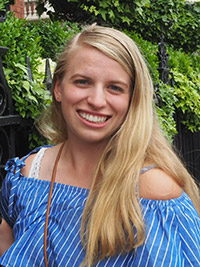
Nicole Rose Lukesh, pharmaceutical sciences
Nicole Rose Lukesh, a Ph.D. candidate in pharmaceutical sciences, received the top prize during UNC-Chapel Hill’s annual Three Minute Thesis (3MT) competition. In March, she competed again at the 3MT regionals in Dallas, TX, where she placed in the top ten—that is to say, in the top 20% of competitors from the Council of Southern Graduate Schools, an organization that encompasses fifteen states. Lukesh’s research seeks to restore mobility to multiple sclerosis patients. The Graduate School sponsored Lukesh’s attendance at the Council of Southern Graduate Schools annual meeting as part of the CareerWell Professional Development initiative.
“Nicole Rose is proof that our graduate students can compete in any venue. Her work resonates with nonspecialists, who are drawn in by her compelling storytelling and use of cultural touchstones. It is an honor to support graduate students like Nicole Rose as they communicate discoveries that will improve the future of all North Carolinians,” said Vanessa Doriott Anderson, assistant dean for academic and career development at The Graduate School.
Tanner Awards for Excellence in Undergraduate Teaching by Graduate Teaching Assistants
In 1990, the University expanded the purview of the Tanner Awards to recognize excellence in the teaching of undergraduates by graduate teaching assistants. Learn more about the Tanner Awards.
- Clare Byers, history
- Andrew Lyons, mathematics
- Dianne Mann, public health
- David Stilwell, physics
- Joseph Tanner Bourne, Romance studies
Excellence in Graduate Student Services Award
Student services managers work hard to support graduate students' academic success and professional development. The Graduate and Professional Student Government and The Graduate School are pleased to present an award in recognition of this important work.
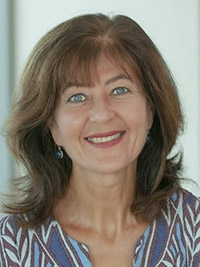
Vilma Berg, Joint Department of Biomedical Engineering
Vilma Berg, graduate student services manager in the Joint Department of Biomedical Engineering, is the 2025 recipient of the Excellence in Graduate Student Services Award.
Vilma has served Carolina’s students for more than 20 years and currently works with graduate students at both UNC and North Carolina State University who are part of the Joint BME program. She not only received an overwhelming number of nominations, but the students in her department submitted deeply passionate and heartfelt statements about why she deserves this award. Vilma goes out of her way to connect with students and find needed resources for them while displaying unparalleled kindness and compassion. This is all the more impressive because she manages student services across two campuses for this joint department. Vilma was described multiple times as “the backbone” of the BME program with one student saying,
“Vilma is a truly remarkable student services manager. There is no one who is more deserving of the Excellence in Graduate Student Services Award.”
It is an honor to present the 2025 Excellence in Graduate Student Services award to Vilma Berg for her tremendous dedication to graduate students in the Joint Department of Biomedical Engineering.
Faculty Award for Excellence in Graduate Student and Academic Program Support
Directors of graduate studies provide exemplary leadership. The Graduate School is pleased to honor the many ways they provide outstanding support for graduate programs and their students.
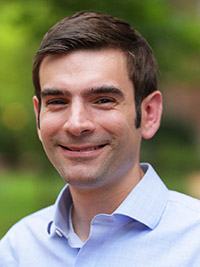
Alexander Miller, chemistry
Alexander Miller is the director of graduate studies and a professor in the department of chemistry.
Numerous people nominated Alex for this award because of his exceptional leadership as the director of graduate studies for the department of chemistry.
Alex is described as someone who tirelessly advocates for graduate students and genuinely seeks to hear their concerns and effectively address their concerns. This commitment was noted in almost every nomination and letter of support for Alex as they praised his impact through implementing town hall meetings for graduate students and helping to found SWELL, a wellness initiative dedicated to fostering a supportive and healthy community for graduate students and postdoctoral scholars. One nomination read,
“Throughout my time in the department of chemistry, Alex has served as a role model and phenomenal leader for our community. Alex’s charisma and encouragement as director of graduate studies has been immensely important towards my development as a scientist, and I am certain from first-hand accounts that the same is true for many of my peers. Alex is a passionate and dedicated leader, and an overwhelmingly positive cornerstone of this department.”
It is an honor to present 2025 Faculty Award for Excellence in Graduate Student and Academic Program Support to Alexander Miller, in recognition of his tremendous dedication to graduate students in the department of chemistry.
Dean’s Award for Significant Contributions to Graduate Education
This award recognizes an individual who has gone above and beyond what is normally required to make significant contributions that impact graduate education.

Beverly Wyrick
Beverly Wyrick, served UNC-Chapel Hill from 1993 until her retirement in 2025. She joined The Graduate School in 2006 and rose to become associate dean of finance and operations.
Beverly’s extensive knowledge and dedication to Carolina’s mission earned her respect from our partners across campus. She worked diligently with every school and academic units to strategically deploy financial resources to best support graduate and professional students. As every dean she served alongside attests, Beverly’s experience, warmth and sense of humor were essential to carrying out The Graduate School’s mission for many years. Every staff member of The Graduate School who served during Beverly’s tenure misses her dearly.

Andrew McMillan
Andrew McMillan, is the CEO of Jefferson Distribution Company in Martinsburg, WV. He is a Carolina alumnus, earning his B.S. in chemistry from UNC-Chapel Hill and a Ph.D. in chemistry from Emory University. He has served on the UNC Board of Visitors and on the advisory board for the UNC department of chemistry.
Most recently, Andrew was a member of the Graduate Education Advancement Board from 2013–2023, serving as chair from 2018–2023. Under his leadership, the board not only provided generous gifts supporting UNC graduate students, but also engaged in thoughtful discussions and suggestions to advance graduate education at our University.
Together with his wife, Kakie, Andrew supported numerous Summer Research Fellowships and Impact Awards and many of The Graduate School’s new initiatives over the last decade. Andrew has given so much to advancing graduate education at Carolina. The Graduate School and UNC graduate students owe him a debt of gratitude.
Graduate School Dean’s Award
This is a new award created in 2025 to honor the remarkable scholarship and leadership contributions of Carolina graduate students and to demonstrate The Graduate School’s commitment to student success.
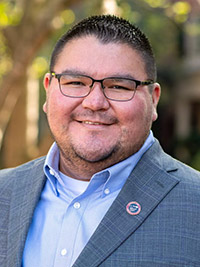
Joel Begay
Joel Begay is a doctoral student in cancer epidemiology at the UNC Gillings School of Global Public Health. Raised on the Navajo Nation in Shiprock, NM, he brings both personal and professional experiences to his research on understanding the social and biological factors contributing to delayed cancer diagnoses. His journey into public health is grounded in community, identity, and a deep sense of responsibility.
Beyond research, Begay represents epidemiology students as a senator in the Graduate and Professional Student Government, advocating for policies that support student well-being and fostering constructive dialogue. He also serves on the steering committee of the Graduate Student Experience Initiative, working to improve the experience of graduate students across the University. Most recently, he co-founded the UNC Association of Native American Medical Students, serving as treasurer.
Begay describes his approach to leadership as “loving service,” a philosophy grounded in humility, compassion, and a desire to uplift others. “I do all of this work because it’s my way of paying it forward,” he said. Begay’s long-term goal is to become an educator dedicated to building public health infrastructure through teaching and mentorship of the next generation of epidemiologists.
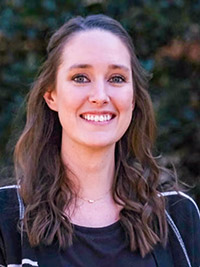
Rebecca Lesnefsky
Rebecca Lesnefsky is a dedicated educator and researcher graduating this year with a doctorate in culture, curriculum, and teacher education (CCTE) from the UNC School of Education. Her research centers on preparing teachers-in-training and developing innovative curricula by integrating socio-scientific issues. She has led curriculum development projects, conducted professional development workshops, and worked closely with teachers to implement these curricula in their classrooms.
Having grown up in a small town in East Texas, Lesnefsky is committed to improving rural education. She demonstrated this commitment through her work supporting teachers in under-resourced rural North Carolina communities. As a student, Lesnefsky cofounded the CCTE professional seminar, served as the assistant director and lead supervisor for the M.A. in teaching program, and was actively involved in recruiting and mentoring her fellow graduate students in the School of Education.
After graduating, Lesnefsky will become a tenure-track assistant professor in education at SUNY Cortland. Her work will focus on elementary STEM teacher education, and she hopes to continue improving science education by discovering ways to help teachers deliver innovative curricula.
“I want to focus on how we prepare teachers to do what they have not done before in the classroom,” Lesnefsky said. “Whether it’s navigating controversial conversations or being inquiry-driven in situations where there is no easy answer, I want to contribute to rethinking how we approach learning science.”
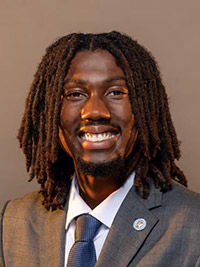
Verdant Julius
Verdant Julius is a graduating master’s student in the maternal and child health department. He is passionate about improving the health of families and communities through research, policy and advocacy. Julius has applied his academic training across North Carolina, including in nonprofits, a hospital system, academic institutions, and the North Carolina Department of Health and Human Services.
As a research assistant in the Fry Lab, Julius leads a project focused on adverse childhood experiences and maternal health and has shared his research at professional and community conferences. Through his fellowships with the North Carolina Black Alliance and the NC DHHS, he has worked to enhance healthcare access, implement community programs, and advocate for equitable health policies.
Julius has served in numerous leadership roles within the Gilling School of Global Public Health, including as co-president of the Minority Student Caucus, as a representative for his classmates in the MCH department, and as a student ambassador for the Gillings admissions office. He has also continued to give back to his alma mater, North Carolina A&T State University, by speaking on panels and mentoring students, some of whom he has guided to graduate programs at Carolina.
After graduating, Verdant will remain at Carolina as a doctoral student in epidemiology. He aims to work as an applied epidemiologist for a state or federal health agency and then sees himself returning to academia as a research professor. He ultimately hopes to teach, establish a research lab, and train the next generation of public health scholars.
“I believe that what I do must have a meaningful impact on the people and the world around me,” Verdant said. “I am dedicated to improving the social welfare of communities and helping to create a world that we haven’t yet seen, but that I deeply hope for.”
Prestigious External Fellowship Winners
External fellowships, which are highly competitive awards from the federal government and other organizations, add to Carolina's reputation as one of the world's leading public research universities. This academic year, 204 graduate students campus-wide, who represent 45 academic programs, received prestigious external fellowships.
Anthropology
- Ariana Avila, American Association of University Women American Dissertation Fellowship
- Rosemary Gay, Fulbright U.S. Student Award; NSF Cultural Anthropology Program - Doctoral Dissertation Research Improvement Grant
- Bevin Hardy, NC Water Resources Research Institute—NC Sea Grant Mountains to Sea Fellowship
- Preethi Saravanan, National Science Foundation Graduate Research Fellowship Program
- Diane Slocum, Fulbright-Hays Doctoral Dissertation Research Abroad Program; Wenner-Gren Dissertation Fieldwork Grant
- Rebecca Wu, National Science Foundation Graduate Research Fellowship Program
Biochemistry and Biophysics
- Dillon Sloan, NIH Fellowship (F31) - National Institute of Dental and Craniofacial Research
Bioinformatics and Computational Biology
- Seyoun Byun, NIH Fellowship (F31) - National Institute of Arthritis and Musculoskeletal and Skin Diseases
- John Patrick Flores, National Science Foundation Graduate Research Fellowship Program
- Dhuvarakesh Karthikeyan, National Science Foundation Graduate Research Fellowship Program
- Grace Kenney, National Science Foundation Graduate Research Fellowship Program
- Nina Nishiyama, NIH Fellowship (F31) - National Institute of Diabetes and Digestive and Kidney Diseases
- Nicholas Randolph, National Science Foundation Graduate Research Fellowship Program
Biological and Biomedical Sciences
- Sumaya Addish, National Science Foundation Graduate Research Fellowship Program
- Emily Claire Bulik-Sullivan, NIH Fellowship (F30) - National Heart, Lung, and Blood Institute
- Matthew Pappas, National Science Foundation Graduate Research Fellowship Program
- Amanda Zoyla Velez, NIH Fellowship (F30) - National Institute of Allergy and Infectious Diseases
Biology
- Karl Hill, National Science Foundation Graduate Research Fellowship Program
- Salome Jaramillo Gil, Fulbright Foreign Student Program
- Madelina Marquez, National Science Foundation Graduate Research Fellowship Program
- Delaney O'Connell, National Science Foundation Graduate Research Fellowship Program
- Stephanie Peak, National Science Foundation Graduate Research Fellowship Program
- Jadyn Sethna, National Science Foundation Graduate Research Fellowship Program
- Eva Mei Shouse, National Science Foundation Graduate Research Fellowship Program
- Elizabeth Smith, National Science Foundation Graduate Research Fellowship Program
- Savannah Weaver, National Science Foundation Graduate Research Fellowship Program
Biomedical and Health Informatics
- Pamela Chacon Uscamaita, Universidad Peruana Cayetano Heredia Tuition Scholarship
- Elizabeth Kwong, P.E.O. Ellen J Fox Scholar Award
Biomedical Engineering
- Emily Kathryn Eichenlaub, NIH Fellowship (F31) - National Institute on Aging
- Sandra Jeanne Stangeland-Molo, NIH Fellowship (F31) - National Institute of Arthritis and Musculoskeletal and Skin Diseases
- Megan Weaver, National Science Foundation Graduate Research Fellowship Program
Biostatistics
- Elena Kharitonova, National Science Foundation Graduate Research Fellowship Program
- Sophie Shan, National Science Foundation Graduate Research Fellowship Program
Cell Biology and Physiology
- Gabrielle Bais, NIH Fellowship (F31) - National Heart, Lung, and Blood Institute
- Whitney Jean Bell, NIH Fellowship (F31) - National Cancer Institute
- Keith Breau, NIH Fellowship (F31) - National Institute of Diabetes and Digestive and Kidney Diseases
- Reginald James Edwards, NIH Fellowship (F31) - National Institute of Neurological Disorders and Stroke
- Nicole Hondrogiannis, National Science Foundation Graduate Research Fellowship Program
- Juliet Stanton King, NIH Fellowship (F31) - National Institute of Dental and Craniofacial Research
- Donald Stephen Serafin, NIH Fellowship (F31) - National Heart, Lung, and Blood Institute
- Christina So, NIH Fellowship (F31) - National Heart, Lung, and Blood Institute
Chemistry
- Samantha Clouthier, National Science Foundation Graduate Research Fellowship Program
- Jessica Coleman, National Science Foundation Graduate Research Fellowship Program
- John Dickenson, Air Force Office of Scientific Research NDSEG
- Justine Drappeau, National Science Foundation Graduate Research Fellowship Program
- Alyssa Felix Thayne, National Science Foundation Graduate Research Fellowship Program
- Maria Furukawa, National Science Foundation Graduate Research Fellowship Program
- Camryn Gloor, National Science Foundation Graduate Research Fellowship Program
- Alexis Harvey, National Science Foundation Graduate Research Fellowship Program
- Lauren Hutchinson, National Science Foundation Graduate Research Fellowship Program
- Katelyn Kitzinger, National Science Foundation Graduate Research Fellowship Program
- Don Mctaggart, National Science Foundation Graduate Research Fellowship Program
- Caroline Mohler, National Science Foundation Graduate Research Fellowship Program
- Evan Stair, National Science Foundation Graduate Research Fellowship Program
- Olivia Steiner, National Science Foundation Graduate Research Fellowship Program
- Charles Teeples, National Science Foundation Graduate Research Fellowship Program
- Sydney Towell, National Science Foundation Graduate Research Fellowship Program
- Samuel Weaver, National Science Foundation Graduate Research Fellowship Program
- Thomas Whittemore, National Science Foundation Graduate Research Fellowship Program
City and Regional Planning
- Jillian Cady, Dwight David Eisenhower Transportation Fellowship
- James Collins, National Science Foundation Graduate Research Fellowship Program
- Audrey Compiano, Dwight David Eisenhower Transportation Fellowship
- Helen Klass-Warch, Dwight David Eisenhower Transportation Fellowship
- Brooke Kongmany, Dwight David Eisenhower Transportation Fellowship
- Daniel Mckiernan, Dwight David Eisenhower Transportation Fellowship
- Rachel Oommen, Dwight David Eisenhower Transportation Fellowship; Emily Blount Trailblazer Scholarship; Helene M. Overly Memorial Scholarship
- Huijoo Shon, Korean Government Scholarship Program for Study Overseas
- Bonnie Sullivan, Dwight David Eisenhower Transportation Fellowship
- Sage Weatherwax, Dwight David Eisenhower Transportation Fellowship
Classics
- Ryan Baldwin, Berthe M. Marti Fellowship
- Amanda Ball, American School of Classical Studies at Athens Homer A. And Dorothy B. Thompson Fellowship
- Emily Lime, Forsyth Visiting Graduate Student Fellowship
Computer Science
- Anneliese Brei, National Science Foundation Graduate Research Fellowship Program
Earth, Marine, and Environmental Sciences
- Ileana Fenwick, National Science Foundation Graduate Research Fellowship Program
- Aliyah Griffith, National Geographic Society Level I Grant: Research and Exploration
- Nadya Gutierrez, Institute of International Education Quad Fellowship
- Yasamin Sharifi, NOAA Nancy Foster Scholarship
- Jose Velez Castano, Fulbright Foreign Student Program
Education
- Maya Bracy, Robert Wood Johnson Foundation Health Policy Research Scholars
- Sahar Habib, National Science Foundation Graduate Research Fellowship Program
English and Comparative Literature
- Jessica Ginocchio, ASEES Stephen F. Cohen–Robert C. Tucker Dissertation Fellowship
- Satoshi Ohnishi, Fulbright Foreign Student Program
Environment, Ecology, and Energy
- Maya Powell, National Science Foundation Graduate Research Fellowship Program
Environmental Sciences and Engineering
- Halle Evans, Dwight David Eisenhower Transportation Fellowship
- Yarrow Linden, National Science Foundation Graduate Research Fellowship Program
- Alexandra Ng, Department of Energy Office of Science Graduate Student Research Award
- Lindsey Pegram, Society of Lake Management Professionals Student Research Award; Water Quality Research Foundation Student Research Travel Award
- Lucy Tantum, National Science Foundation Graduate Research Fellowship Program
Epidemiology
- Theo Beltran, NIH Fellowship (F31) - National Institute of Mental Health
- Brooke Whitney Bullington, NIH Fellowship (F31) - Eunice Kennedy Shriver National Institute of Child Health and Human Development
- Kelly Carey-Ewend, NIH Fellowship (F30) - National Institute of Allergy and Infectious Diseases
- Michelle Terese Delahanty, NIH Fellowship (F31) - Eunice Kennedy Shriver National Institute of Child Health and Human Development
- Ruthly Francois, NIH Fellowship (F30) - National Institute of Allergy and Infectious Diseases
- Taniqua Ingol, NIH Fellowship (F31) - Eunice Kennedy Shriver National Institute of Child Health and Human Development
- Jacob Kahrs, NIH Fellowship (F31) - Eunice Kennedy Shriver National Institute of Child Health and Human Development
- Catherine Xin-Di Li, NIH Fellowship (F30) - Eunice Kennedy Shriver National Institute of Child Health and Human Development
- Monica E Swilley-Martinez, NIH Fellowship (F31) - National Institute on Minority Health and Health Disparities
Genetics and Molecular Biology
- Elizabeth Abrash, NIH Fellowship (F31) - Eunice Kennedy Shriver National Institute of Child Health and Human Development
- Marielle Louise Bond, NIH Fellowship (F31) - National Institute on Aging
- Erica Marie Branham, NIH Fellowship (F31) - National Institute of Arthritis and Musculoskeletal and Skin Diseases
- Sean Connelly, NIH Fellowship (F30) - National Institute of Allergy and Infectious Diseases
- Rachel Nell Dumez, NIH Fellowship (F31) - National Center for Complementary and Integrative Health
- Mark Stephen Geisler, NIH Fellowship (F31) - Eunice Kennedy Shriver National Institute of Child Health and Human Development
- Gabrielle Marie Gentile, NIH Fellowship (F31) - National Heart, Lung, and Blood Institute
- Micah Hysong, National Science Foundation Graduate Research Fellowship Program
- Sarah Ann Lester, NIH Fellowship (F31) - National Heart, Lung, and Blood Institute
- Jeanne-Marie Mcpherson, NIH Fellowship (F31) - National Institute on Aging
- Mckenzie Murvin, NIH Fellowship (F31) - Eunice Kennedy Shriver National Institute of Child Health and Human Development
- Nila Madassary Pazhayam, NIH Fellowship (F31) - National Institute on Aging
- Gabrielle Alair Quickstad, NIH Fellowship (F31) - National Institute of Dental and Craniofacial Research
- Ryan Salcido, National Science Foundation Graduate Research Fellowship Program
Geography and Envirionment
- Tara Di Cassio, National Science Foundation Graduate Research Fellowship Program
- Sara Ghebremicael, Fulbright-Hays Doctoral Dissertation Research Abroad Program
- Sophia Ryan, National Hazard Center Special Call for Health Outcomes and Climate-Related Disaster Research
- Nguyen Tien Anh Quach, Society for Freshwater Science Emerge Fellowship
- Bryttani Wooten, National Science Foundation Graduate Research Fellowship Program
Health Behavior
- Quetzabel Benavides, Robert Wood Johnson Foundation Health Policy Research Scholars
- Ana Paula Cardoso Richter, NIH Fellowship (F31) - Eunice Kennedy Shriver National Institute of Child Health and Human Development
- Mannat Malik, Canadian Institutes for Health Research Doctoral Foreign Study Award
- Laurel Ann Sharpless, NIH Fellowship (F31) - National Institute of Mental Health
Health Policy and Management
- Jeremy David Fine, NIH Fellowship (F30) - National Institute of Mental Health
- Cambray Smith, Gertrude B. Elion Mentored Medical Student Research Award; NIH Fellowship (F30) - Eunice Kennedy Shriver National Institute of Child Health and Human Development
History
- Alison Curry, Association for Jewish Studies Dissertation Completion Fellowship
- Alma Huselja, Saul Kagan Claims Conference Fellowship in Advanced Shoah Studies
- Madeline James, Alexander Grass Memorial Fellowship
- Luke Jeske, ASEES Stephen F. Cohen–Robert C. Tucker Dissertation Fellowship
- Megan Mcclory, Kokugakuin University Visiting Fellow Program
- Tess Megginson, SSHRC Doctoral Fellowship
- James Sojourner, Blakemore Freeman Fellowship
Human Movement Science
- Ling Beisecker, NASPSPA Graduate Student Research Grants
Information and Library Science
- Bernice Meja, Association of Research Libraries Kaleidoscope Program
Maternal and Child Health
- Stephanie Roslyn-Isabelle Chung, NIH Fellowship (F31) - Eunice Kennedy Shriver National Institute of Child Health and Human Development
- Julia Reddy, NIH Fellowship (F31) - National Institute on Drug Abuse
Mathematics
- David Passey, National Science Foundation Graduate Research Fellowship Program
Musicology
- Erin Pratt, Klassik Stiftung Weimar Fellowship
Neuroscience
- Maya Bluitt, National Science Foundation Graduate Research Fellowship Program
- Sara Yi-Ling Conley, NIH Fellowship (F31) - National Institute on Alcohol Abuse and Alcoholism
- Joseph Krzeski, NIH Fellowship (F31) - National Institute of Neurological Disorders and Stroke
- Noah William Miller, NIH Fellowship (F31) - National Institute of Mental Health
- Nicole Elise Ochandarena, NIH Fellowship (F30) - National Institute on Drug Abuse
- Shannon Rhoads, NIH Fellowship (F31) - National Institute on Aging
- Nicholas W Ringelberg, NIH Fellowship (F30) - Eunice Kennedy Shriver National Institute of Child Health and Human Development
- Gates Schneider, National Science Foundation Graduate Research Fellowship Program
- Rachel Sharp, National Science Foundation Graduate Research Fellowship Program
Nursing
- Rebeca Alvarado-Harris, NIH Fellowship (F31) - National Institute of Nursing Research
- Taleah Frazier, Robert Wood Johnson Foundation Health Policy Research Scholars
- Latesha Harris, Robert Wood Johnson Foundation Health Policy Research Scholars
- Anna Rothfuss Matthews, NIH Fellowship (F31) - National Institute of Nursing Research
- Randi Mcarthur, NIH Fellowship (F31) - National Institute of Nursing Research
- Jingle Xu, NIH Fellowship (F31) - National Institute of Nursing Research
Nutrition
- Victoria Behm, Integrative, Complementary and Traditional Health Practices Fellowship
- Emily Devericks, NIH Fellowship (F31) - National Cancer Institute
- Joshua D Miller, NIH Fellowship (F31) - Eunice Kennedy Shriver National Institute of Child Health and Human Development
- Rafia Virk, NIH Fellowship (F31) - National Heart, Lung, and Blood Institute
Pathology and Laboratory Medicine
- Xiaolu Pan, NIH Fellowship (F31) - National Cancer Institute
Pharmaceutical Sciences
- Glory Dan-Dukor, National Science Foundation Graduate Research Fellowship Program
- Henry Dieckhaus, National Science Foundation Graduate Research Fellowship Program
- Alyssa Holden, National Science Foundation Graduate Research Fellowship Program
- Sarah Howard, National Science Foundation Graduate Research Fellowship Program
- Sara Rose Wasserman, NIH Fellowship (F31) - National Institute of Allergy and Infectious Diseases
Pharmacology
- Amy Aponte, NIH Fellowship (F31) - National Cancer Institute
- Tania Jazmine Bellinger, NIH Fellowship (F31) - National Institute on Drug Abuse
- Mckenzie Grundy, National Science Foundation Graduate Research Fellowship Program
- Sarah Mott, National Science Foundation Graduate Research Fellowship Program
- Ryan Robb, NIH Fellowship (F31) - National Cancer Institute
- Michael Sean Sturdivant, NIH Fellowship (F31) - National Cancer Institute
Physics and Astronomy
- Madyson Barber, National Science Foundation Graduate Research Fellowship Program
- Andrew Boyle, National Science Foundation Graduate Research Fellowship Program
- Guadalupe Duran, National Science Foundation Graduate Research Fellowship Program
- Joseph Moscoso, Department of Energy Office of Science Graduate Student Research Award
Political Science
- Said Ghneim, DAAD Research Grant
- Elena Sirotkina, Institute for Humane Studies Fellowship
- Hunter Steen, DAAD Study Scholarship - Master Studies for All Academic Disciplines
Psychology and Neuroscience
- Sophie Charlotte Bendrath, NIH Fellowship (F31) - National Institute on Alcohol Abuse and Alcoholism
- Michael Bremmer, Research Society on Alcoholism Doctoral Student Small Grant
- Megan Cardenas, National Science Foundation Graduate Research Fellowship Program
- Grace Mae Elliott, NIH Fellowship (F31) - National Institute on Alcohol Abuse and Alcoholism
- Yuritza Escalante, National Science Foundation Graduate Research Fellowship Program
- Mallory Jean Feldman, NIH Fellowship (F31) - National Institute on Aging
- Shedrick Garrett, National Science Foundation Graduate Research Fellowship Program
- Amanda Haik, NIH Fellowship (F31) - National Institute on Drug Abuse
- Asha Hinson, National Science Foundation Graduate Research Fellowship Program
- Azure Latimer, Robert Wood Johnson Foundation Health Policy Research Scholars
- Lucy Lurie, NIH Fellowship (F31) - National Institute of Mental Health
- Margarett Mcbride, Ford Foundation Predoctoral Fellowship
- Esmeralda Navarro, NIH Fellowship (F31) - National Institute of Mental Health
- Olivia Havemeyer Pollak, NIH Fellowship (F31) - National Institute of Mental Health
- Micaela Rodriguez, National Science Foundation Graduate Research Fellowship Program
- Michelle Shipkova, National Science Foundation Graduate Research Fellowship Program
- Maurryce Starks, National Science Foundation Graduate Research Fellowship Program; Robert Wood Johnson Foundation Health Policy Research Scholars
- Jennifer Marie Traver, NIH Fellowship (F31) - National Institute on Drug Abuse
Religious Studies
- Sierra Lawson, Charlotte W. Newcombe Doctoral Dissertation Fellowship
Romance Studies
- Meaghan Coogan, Fulbright-Hays Doctoral Dissertation Research Abroad Program
Social Work
- Hana Daher Lopes, Government of Brasilia Employer-Paid Benefits
- Sumudu Wijesuriya Arachchige, P.E.O. International Peace Scholarship
Sociology
- Jarvis Benson, National Science Foundation Graduate Research Fellowship Program
- Kaitlin Joshua, National Science Foundation Graduate Research Fellowship Program
- Athena Owirodu, National Science Foundation Graduate Research Fellowship Program
- Austin Vo, Fulbright-Hays Doctoral Dissertation Research Abroad Program
- Ian Wallace, Institute of International Education Boren Fellowship
Speech and Hearing Sciences
- Orla Caroline Putnam, NIH Fellowship (F31) - National Institute on Deafness and Other Communication Disorders
Statistics and Operations Research
- Michael Nisenzon, National Science Foundation Graduate Research Fellowship Program
Toxicology
- Catalina Cobos-Uribe, NIH Fellowship (F31) - National Institute of Environmental Health Sciences
- Charlotte Ann Love, NIH Fellowship (F31) - National Heart, Lung, and Blood Institute
